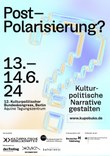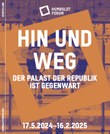Freedom of expression, free elections, and freedom of religion — the EU guarantees fundamental rights and is an area of great freedom. Two months after Brexit the continent is in crisis. If it wants to enable its residents to identify as Europeans, it must regain and display self-confidence.
I am child of the nineties. As a child I saw the signing of the Maastricht accords — those famous treaties that transformed the EU from an economic community to a political union. In my first bank account I saved Euros and I did not have a lot of stamps in my German passport because to travel, an identification card was enough. I grew up in this Europe and therefore, I take the EU for granted. Now the facade seems to crumbling, member states are divided over key issues like the refugee crisis and the policy in the Syrian conflict and member states shift right. “This is the beginning of a new Europe“, Merkel, Hollande and Renzi recently said after Britain´s shock referendum vote. But who am I among those 50 Million people living in Europe? Witnessing the European refugee crisis, the confusion of Brexit and this shift to right in EU countries like Poland, Denmark or Austria after their national elections. We have certainly all noticed that, for a lot of other EU citizens the notion of the European Union seems to be less self-evident.
It´s not just the British
Euroscepticism is on the rise all across Europe. A new research report by the respected American think-tank the Pew Research Centre shows that more than 60 per cent of French voters now have an unfavorable view of the European Union, while almost half the electorate in Germany, Spain and the Netherlands have also become Eurosceptic. Anti-Europeans like UKIP´s Nigel Farage in the UK and FPÖ´s Norbert Hofer in Austria find support in citizens, mostly in rural areas and among the elderly. There seems to be a clash between young and old as well as rural and urban. What means mobile working, semester abroad, city trips for some people, for others means fear of losing national power and blaming Brussels for this. It would be so much easier for Europe if people were more willing to identify with it. But instead of persuading the masses of its good ideas and successes, it sinks into self-doubt which shows nothing more than: weakness. In contrast to the British queen who wins the hearts of many UK citizens simply with her presence, the EU must convince its citizens with political substance, and it can stand out with political success. In spite of all the scepticism and criticism of the EU, it kept the highest of all objectives: peace. Freedom of movement in Europe, a higher living standard and not to forget democracy are all convincing arguments against Eurosceptisism. Should that not be enough to celebrate? No, because the increase of nationalism reflects a failed search for a common identity. Little of the promise of a strong Europe is left. Even though the European Commission reports on accomplished actions and successes, this seems not to be enough for EU citizens to jump out of their chairs and to applaud. It´s not even enough to regain their confidence. The good news: there is hope on the horizon. As the Swiss writer Max Frisch once said: “a crisis is a productive state. One must only take away the disaster.”
Way out of the crisis
Yet, the EU is struggling with a common vision and life will not get any simpler two months after Brexit. But Europe is able to squirm out of this popularity crisis and to escape the negative image of a ‘power obsessed and passive technocrat-machinery’. However, the partner countries must work simultaneously on many solutions to prevailing problems. The leaders need to extent initiatives in rural areas and increase support for those who are not coming to enjoy the European idea yet. The EU must appear more self-confident. The member states need to agree on a shared vision and actions. This would offer more stability and reasons for people to identify with Europe. The continent must provide a credible expansion of national identities without competing with nation states. More than ever, it is substance, not just images of diplomatic choreography, that governments now need to produce.




